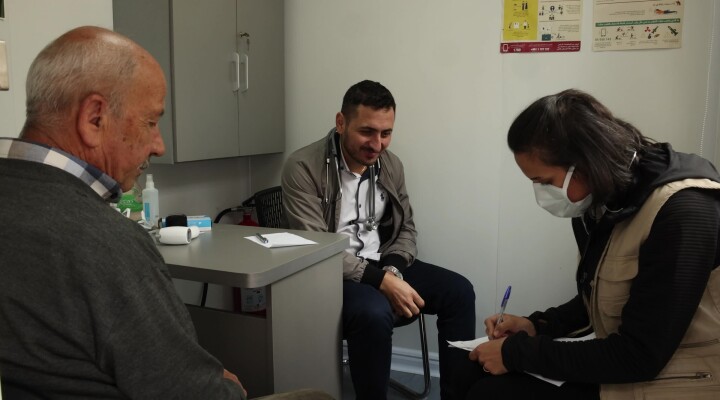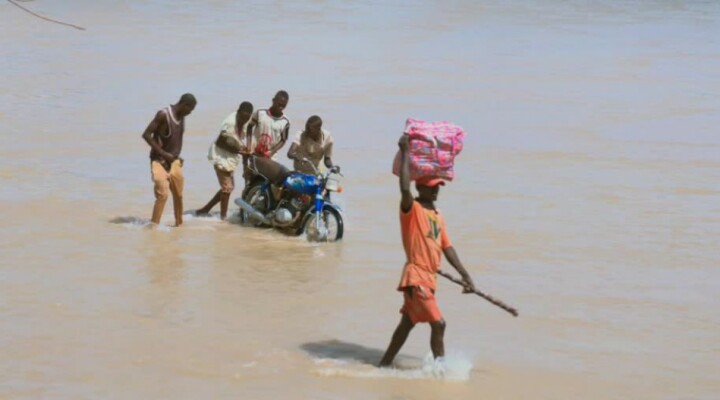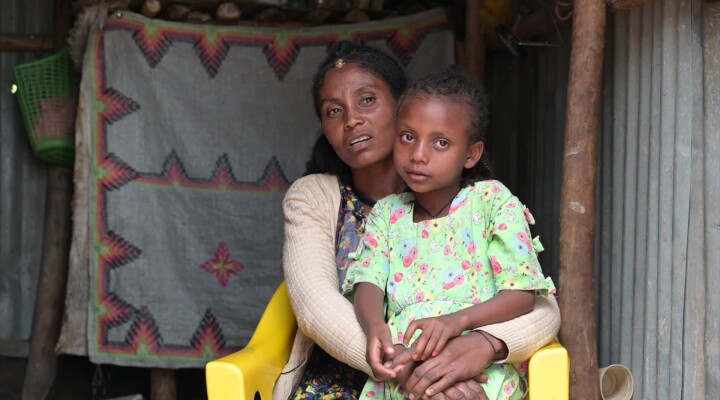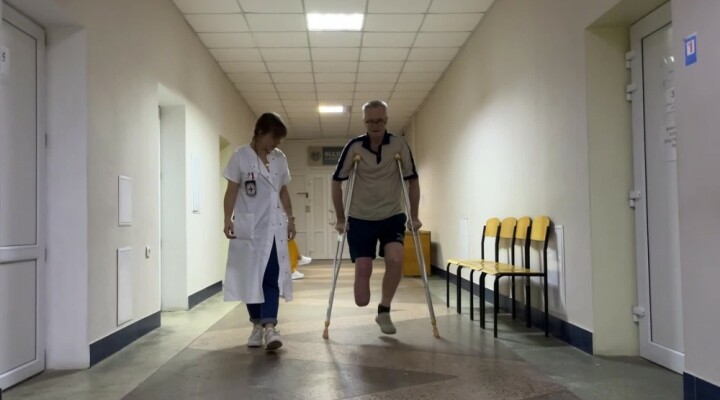In the eight countries surveyed, nearly half the respondents (44%) had personal experience of conflict, while around two thirds (66%) had been affected in some way. Almost everyone in Haiti (98%), Lebanon (96%), and Afghanistan (96%) had suffered the wider consequences of armed violence and war.
The survey was carried out between February and April 2009, by a leading opinion research group, IPSOS. The group conducted interviews* with more than 4,000 people in Afghanistan, Colombia, the Democratic Republic of the Congo, Georgia, Haiti, Lebanon, Liberia and the Philippines.
In these countries, which are affected or have recently been affected by armed conflict and violence, being uprooted from home, separated from loved ones and dealing with economic hardship are day-to-day realities.
Of the people surveyed who had experienced armed conflict, some striking findings emerge: in Liberia, nine in ten people (90%) have been driven from their homes. In Afghanistan, the figure is 76%, and in the Democratic Republic of Congo 58%. In Afghanistan, 61% had been separated from close family members, while 47% in the Democratic Republic of the Congo and over one in three (37%) in Haiti have suffered separation from a loved one.
For many, death or injury are the most extreme impacts of violence. Nearly half (45%) of people in Afghanistan and a quarter of people in DRC said that close family members had been killed in the fighting.
A lack of access to basic necessities and healthcare are further widespread concerns, particularly in Afghanistan and Haiti, where nearly two thirds of those directly affected by hostilities said there was a shortage of water, electricity and medical treatment.
The survey has been carried out to mark the 150th anniversary of the battle of Solferino, which led to the creation of the International Committee of the Red Cross in 1863. Around 6,000 soldiers were killed and more than 30,000 wounded in this decisive battle for Italian unity waged between Franco-Sardinian forces and Austrian troops near the northern Italian village of Solferino. Only one civilian was reported to have died during the battle - a stark contrast to today when civilians bear the brunt of conflict.
The eight countries chosen for the survey are considered today's "Solferinos" as they illustrate pressing humanitarian issues related to armed conflict such as displacement, separation from relatives, and economic hardship.
"The results of this survey underscore the importance of the ICRC approach in listening to the fears, hopes and expectations of victims of conflict and armed violence and putting them at the centre of our humanitarian response," said Pierre Kraehenbuehl, ICRC Director of Operations.
Video Story
Afghanistan:
For decades, Afghanistan has been in a state of conflict. Past invasions and current fighting between armed groups and national and international forces have taken a heavy toll on the civilian population. More than half of the country is affected by war, with the worst fighting in the southern provinces.
Many health facilities have been damaged or destroyed, and access to medical care is severely limited. Mirwais Hospital in Kandahar is the sole referral hospital for the 3.7 million people who live in southern Afghanistan. Every month, it treats around 5000 outpatients and 2000 inpatients. Surgeons at the hospital have receive specialist training in war surgery from the ICRC to treat the many victims of bullet wounds, shelling, suicide attacks and military bombardments.
It took 20-year-old Abdul Wali five hours by taxi to get to Mirwais hospital for life saving treatment. He was hit by shrapnel when his village in Hellmand Province was bombarded from the air. Both legs were badly broken and he underwent surgery to save his foot.
The children's wards in Mirwais are overflowing with patients. Some have been injured in shelling or explosions, but many suffer the indirect consequences of conflict, including lack of access to health care, malnutrition and the disruption of vaccination programmes.
Democratic Republic of Congo:
DRC is still recovering from a 5 year war that claimed the lives of millions in the 1990's. Renewed fighting in August 2008 displaced 300,000 people in North Kivu in the east of the country.
The ICRC launched extensive emergency relief operations to assist people living near to the fighting and in areas where the displaced fled. Thousands of families became separated during the fighting. Many of the children ended up in orphanages, like the Covedec centre in Goma, run by a local pastor with support from the ICRC.
As well as providing assistance to orphanages, the ICRC traces and reunites unaccompanied children with their families. When the fighting broke out, 17-year-old Shukuru Ndagije lost contact with his relatives who had fled to Goma. He had been taken north by soldiers to work for them as a porter. He was found by the ICRC who brought him back to live with his aunt and uncle in the village of Rutshuru near Goma.
Haiti:
Between 2004 and 2007 Haiti was one of the most dangerous places in the world to live as a result of gang violence. Today the country is calmer, but it still remains the poorest nation in the western hemisphere.
Martissant, the sprawling slum perched on a mountainside overlooking the capital Port au Prince, is today the most violent place in Haiti, with gangs fighting for power across its five zones. In March 2008, the Haitian Red Cross set up an ambulance service run by its volunteers. It provides a lifeline to the sick and injured in the slum, who live far from the nearest hospital. The 80 volunteers, led by 23-year-old Jude Celloge, work around the clock, taking patients to the nearest emergency clinic, run by Médecins Sans Frontières. (Doctors Without Borders).
Editors notes:
Random probability sampling was used to ensure that the survey covered a broad cross-section of the general public in terms of gender, age, education, employment, religion, income and marital status.
SHOTLIST ATTACHED



